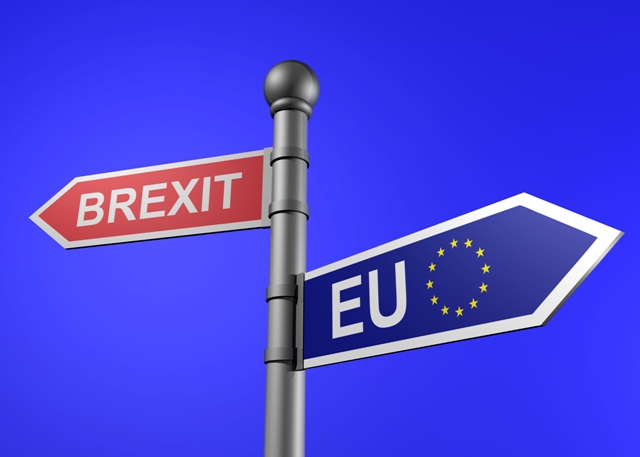 Every Brexit step and statement will be followed closely worldwide. [photo: iStock]
Every Brexit step and statement will be followed closely worldwide. [photo: iStock]
An opinion piece by Sir Peter Marshall. [Opinions expressed in blogs on this website do not reflect the position of the Round Table.]
On the front cover of its issue of 7 January, The Economist featured a full page photograph of the Prime Minister, captioned “Theresa Maybe, Britain’s indecisive premier”. Four weeks later, the Prime Minister’s words, the Prime Minister’s actions and the reaction worldwide to both, show this verdict to be a strong candidate for the prize of Commentariat misjudgement of the year
Brexit really does mean Brexit. “Leave” really does mean “leave”. The necessary joined-up thinking is well in hand. The transformation is palpable. Instead supposedly of a country at odds with itself, uncertain and unhappy in the wake of a Referendum decision unexpectedly reached after a decidedly sub-standard campaign, we are a nation which has grasped the hard way the realities of the twenty-first century; which has faced up to the challenges those realities impose on us; which has developed a strategy to cope with them; and which is ready, as a key part of that strategy, to enter into the arduous negotiations with our partners necessary to give effect to our decision to withdraw from the European Union.
Abroad, the Referendum result led us initially to be regarded as rocking the international boat for no adequate reason. The result of the US Presidential election and the arrival at the White House of President Trump has opened up a different perception: instead of having to explain away our action, we now experience a greater willingness to concede that the Referendum result could be on the side of history. The Dutch parliamentary elections in March, and the French Presidential election in April will show which way the wind is blowing.
We are thus ready to trigger Article 50 in a manner which will not only carry conviction with our EU partners, but will also reassure world opinion. Our every step and statement will be followed closely worldwide.
As we go forward, what backward glances should we cast? We can justifiably rue not only the shortcomings of the Referendum campaign itself, but also our failure to prevent an inward-looking EU management from losing its way in the aftermath of the Cold War and the enlargement to the East.
But there is no case for seeking to put the clock back. Yet this was a legitimate impression to be derived from a good number of the speeches in the monster debate in the Lords on February 20 and 21. Formally, those in their Lordship’s House who seek to propose changes at the Committee stage to the legislation may maintain that they are asking the House of Commons to think again. In reality they are re-running the Referendum campaign – albeit at a much higher level of discussion.
A central inconsistency in the “revisit-the-Referendum-result” approach is the belief on the one hand that many who voted to leave would switch to stay, and the assumption on the other that those who opted to stay would remain constant in their conviction. There is good reason, however, to suppose that this is the wrong way round. The enormous majorities achieved in the House of Commons votes on the Brexit Bill show that our legislators, very largely at the time of the Referendum in favour of remaining, now accept that the degree of discontent and of mistrust of the Establishment manifested on that occasion shows that, in Walpole’s classic phrase, “this dance can no longer go”. The historic result of the Copeland by-election is assuredly a ringing endorsement of that verdict.
I was among many people voted to Remain, not because of the uncertainty per se of the situation , but because in the midst of that uncertainty, voting to leave involved taking substantial palpable risks in EU terms, for the sake of questionable rewards outside it. A particular cause of concern was how such a policy would affect the education and the job prospects of the young. (Discussion of matters European in our family, as in many others, is strongly inter-generational.)
The Referendum vote changed the perspective. The risks to our future could be seen to come more from inaction at home than from action in the EU
At the end of the day, the success of Brexit will be decided not by the accuracy of our diagnoses, nor by the realism of our prescriptions, but by the degree of consensus, skill and determination which we bring to the quest the Referendum result demands that we undertake. Goethe said of us that we had the courage to be what Nature made us. We must demonstrate anew the truth of that encouraging proposition. We must, as a leading World War II slogan put it, “see it through”.
But we should also season high purpose with a sense of proportion. A Canadian friend of mine used to say “the British always land on their feet or on someone else’s”.
Sir Peter Marshall is a former Commonwealth Deputy Secretary-General. He has also served with the Foreign & Commonwealth Office and as Britain’s Representative to the United Nations. He has also served as the Chair of the Royal Commonwealth Society.
This article will appear in the Round Table Journal: The Commonwealth Journal of International Affairs.
Related articles
The ACP, the Commonwealth and the challenges of Brexit
Brexit: It’s about to get real
Brexit and the Commonwealth: What Next?



